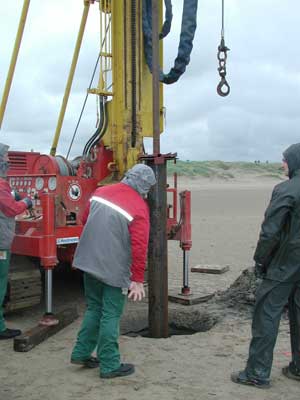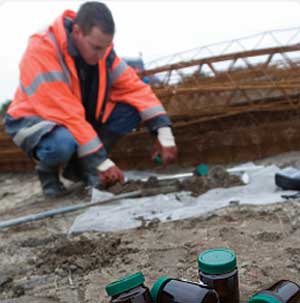Coastal Engineer
Tasks & duties

Coastal engineers may do some or all of the following:
-
meet clients to discuss their requirements
-
assess problems such as erosion or accretion (build up) of sand at beaches and ports
-
work on improving certain beaches, ports, wharves or marinas
-
analyse photographs and research sites and their surrounding areas
-
write reports on coastal areas
-
estimate the cost of projects
-
supervise the design and construction of structures, beaches, coastal works, cable laying, seabed pipelines, port structures and coastal roads
-
model wave and beach processes using physical and numerical (computer-based) models
-
assess the environmental effect and impact of coastal structures
-
develop management plans and strategies for coastal developments
-
obtain resource consent for the development of coastal structures and consult with communities that may be affected
-
be involved in coastal roading projects where roads are vulnerable to damage from waves, storms and coastal erosion
-
be expert witnesses at resource consent and environmental court hearings
Skills & knowledge

Coastal engineers need to have:
-
knowledge of coastal areas, waves, tides and the ocean, and the properties and mobility of materials such as sand and soil
-
knowledge of civil engineering
-
knowledge of physics and maths
-
knowledge of relevant legislation such as the Resource Management Act, the New Zealand Building Code, local by-laws and town planning regulations
-
skill in analysing and interpreting information such as client requirements, plans and designs
-
problem-solving skills
-
planning and organisational skills
-
good communication skills
-
writing skills for producing reports
-
computer skills, including the ability to use computer-aided design (CAD) software and programs that analyse coastal factors such as tide waves, storm surges and general wave currents
Entry requirements
To become a coastal engineer you need a Bachelor of Engineering. A Diploma in Engineering or an equivalent diploma may also be acceptable.
Secondary education
To enter tertiary training, Bursary or NCEA equivalent English, maths with calculus, physics and chemistry is preferred.
Training on the job
Skills are gained on the job. Coastal engineers may attend courses, seminars, workshops and conferences to keep their skills up to date.
Coastal engineers may apply to the Institution of Professional Engineers New Zealand (IPENZ) to become a chartered professional engineer (CPEng) after:
-
completing relevant qualifications
-
gaining appropriate work experience (usually four to five years) and
-
completing a practical competency assessment
To maintain registration, chartered engineers need to demonstrate their ability to practice and display evidence of undertaking professional development at least every five years.
Registration
Coastal engineers should be registered with the Institution of Professional Engineers New Zealand (IPENZ).
Useful experience
Useful experience for coastal engineers includes surveying or engineering work, and any work with people. Working in regional councils in the resource-consent processing section or as a field officer may also be useful.
People wanting to enter the field may also wish to get involved with voluntary groups such as coast care groups, resource management groups and coastal dune vegetation networks.
Any water-related sport which gives an understanding of waves, such as surfing or diving, may also be helpful.
Related courses
Building Science and Technology
Construction Engineering
Environmental Engineering
Geotechnical Engineering
Water and Sanitary Engineering
For more information, please refer to Career Services.
Document Actions
